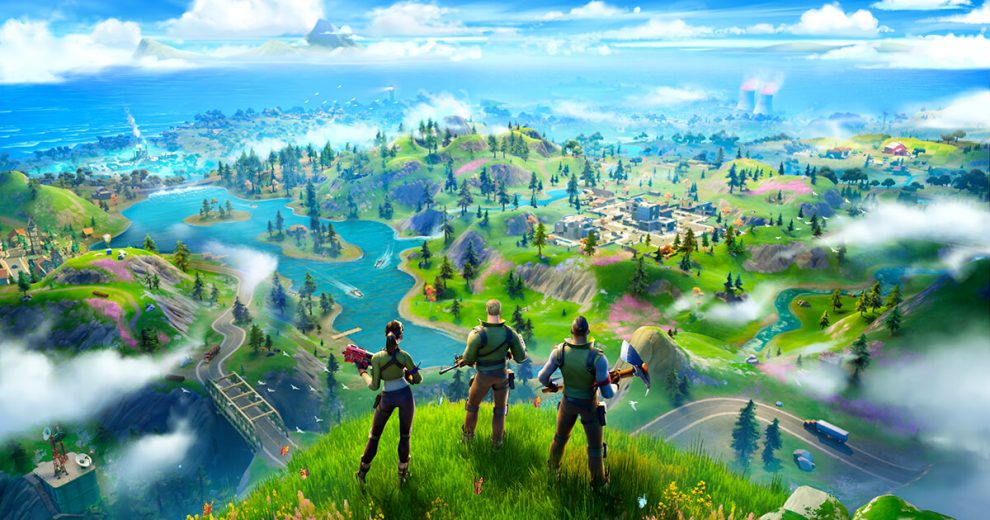Video games have come a long way since their inception in the early 1970s. From simple, 2D arcade games to immersive, 3D virtual worlds, video games have evolved at an incredible pace. Today, video games are not just a form of entertainment, but they are also shaping our reality in ways that we never thought possible.
In this essay, we will explore how video games are influencing our lives, our society, and our culture. We will examine the impact of video games on our behavior, our relationships, and our perceptions. We will also discuss the potential of video games to shape our future and the implications of this phenomenon.
The Influence of Video Games on Our Behavior
Video games have a profound impact on our behavior, both positive and negative. On the positive side, video games can improve our cognitive skills, such as problem-solving, decision-making, and multitasking. Games like puzzles, strategy games, and first-person shooters require players to think critically and make quick decisions, which can enhance these skills.
Moreover, video games can also improve our motor skills and coordination. Games that require players to use controllers or keyboards to manipulate game elements can help develop hand-eye coordination and fine motor skills.
However, video games can also have negative effects on our behavior. Excessive gaming can lead to addiction, social isolation, and decreased physical activity. Players who spend long hours playing video games may neglect their responsibilities, such as work, school, or personal hygiene.
Furthermore, violent video games have been linked to aggressive behavior and desensitization to violence. Studies have shown that players who play violent games tend to have a higher level of aggression and a lower level of empathy than non-players.
The Impact of Video Games on Our Relationships
Video games can also affect our relationships with others. On the positive side, video games can provide a platform for social interaction and collaboration. Multiplayer games like MMORPGs (Massively Multiplayer Online Role-Playing Games) and online shooters allow players to connect with others from around the world, form communities, and work together to achieve common goals.
However, video games can also have negative effects on our relationships. Excessive gaming can lead to social isolation and neglect of real-life relationships. Players who spend long hours playing video games may neglect their family, friends, and romantic partners, leading to conflicts and feelings of abandonment.
Moreover, video games can also create unrealistic expectations and promote unhealthy comparisons. Players may compare their virtual achievements to their real-life circumstances, leading to feelings of inadequacy and dissatisfaction.
The Influence of Video Games on Our Perceptions
Video games can also shape our perceptions of the world around us. Games can provide a window into different cultures, histories, and perspectives, allowing players to explore and learn about new things. Educational games like “Assassin’s Creed Odyssey” and “The Witness” can teach players about history, art, and science in an engaging and interactive way.
However, video games can also perpetuate stereotypes and reinforce harmful beliefs. Games that feature violent or sexualized characters can reinforce negative attitudes towards women, minorities, and other marginalized groups.
Moreover, video games can also create unrealistic expectations and promote consumerism. Games that feature luxurious lifestyles, expensive cars, and lavish homes can create a desire for material possessions and reinforce harmful consumerist attitudes.
The Potential of Video Games to Shape Our Future
Video games have the potential to shape our future in many ways. On the positive side, video games can provide a platform for education, socialization, and creativity. Games like “Minecraft” and “Roblox” allow players to build and create, fostering creativity and problem-solving skills.
Moreover, video games can also provide a platform for social change. Games like “This War of Mine” and “Papers, Please” can raise awareness about social and political issues, such as war, poverty, and immigration.
However, video games can also have negative effects on our future. Excessive gaming can lead to decreased productivity, social isolation, and decreased physical activity. Moreover, the addictive nature of video games can lead to a decrease in face-to-face interactions and an increase in screen time, which can have negative effects on mental and physical health.
The Implications of Video Games Shaping Our Reality
The implications of video games shaping our reality are far-reaching and complex. On the positive side, video games can provide a platform for education, socialization, and creativity. They can also raise awareness about social and political issues and promote positive change.
However, the negative effects of video games cannot be ignored. Excessive gaming can lead to decreased productivity, social isolation, and decreased physical activity. Moreover, the addictive nature of video games can lead to a decrease in face-to-face interactions and an increase in screen time, which can have negative effects on mental and physical health.
Furthermore, the impact of video games on our behavior, relationships, and perceptions raises ethical concerns. Games that promote violence, sexualization, and consumerism can have negative effects on our attitudes and beliefs. Moreover, the use of loot boxes and microtransactions in games raises concerns about gambling and exploitation.
Conclusion
Video games have come a long way since their inception, and they continue to shape our reality in ways that we never thought possible. They have the potential to provide a platform for education, socialization, and creativity, but they also have negative effects on our behavior, relationships, and perceptions.
It is important for us to be aware of the impact of video games on our lives and to take steps to mitigate their negative effects. Parents, educators, and policymakers must work together to create a balanced and healthy gaming environment that promotes positive change and minimizes harm.
In conclusion, video games are a powerful force that can shape our reality in both positive and negative ways. It is up to us to harness their power and create a better future for all.



















Add Comment